For Big Oil and Gas, Greenwashing is the New Climate Denial
Instead of outright climate denial, the new fossil fuel industry strategy is delaying action on climate change through confusing greenwashing tactics.
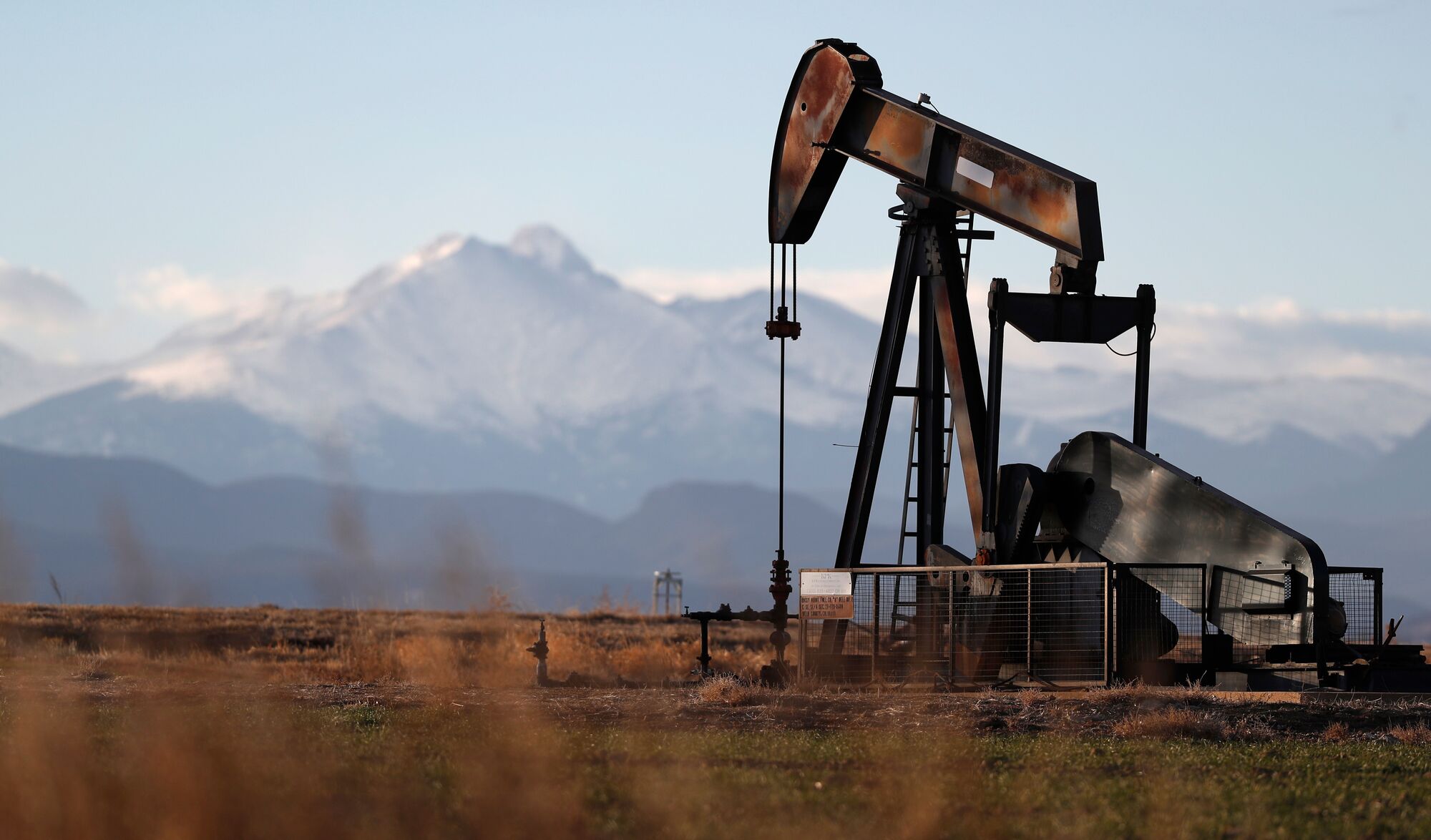
This page was published 2 years ago. Find the latest on Earthjustice’s work.
This year, people in Canada, the Midwest, and on the East Coast experienced record-breaking wildfire-related pollution the same month that scientists warned that the world is emitting greenhouse gas emissions at an all-time high. Climate change is here, and the fossil fuel industry knows it’s undeniable. So it’s switching up its playbook: by moving from denying climate change outright to delaying climate action through various forms of distraction, deceit, and false promises.
Here are four ways they’re doing it, and how we can stop them.
1. Promoting methane gas as clean energy
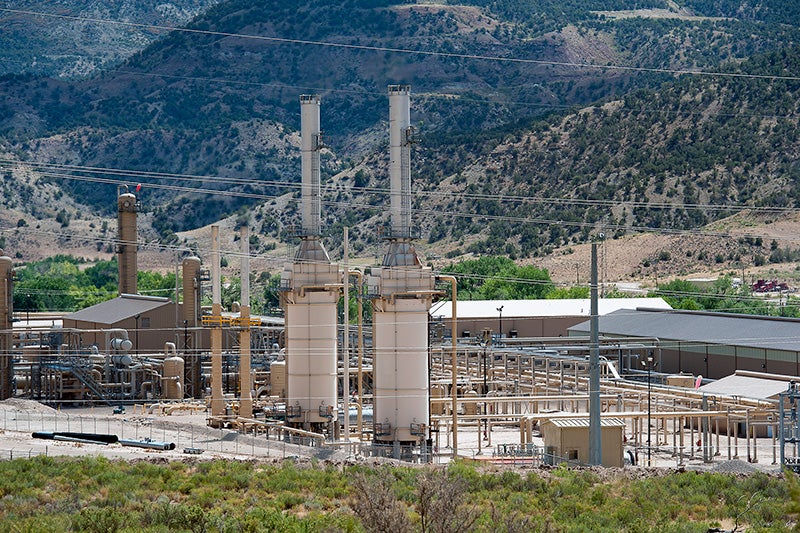
Oil and gas operations near residential areas in Colorado. The Four Corners region ranks first nationally for methane pollution. (Chris Schneider for Earthjustice)
There’s nothing clean or natural about methane gas: It’s a greenhouse gas that traps heat in the atmosphere 80 times the rate of carbon dioxide. But the gas industry and its allies are spending a lot of time and money to convince you otherwise. For years they have tried to position methane gas as a climate-friendly alternative to coal.
Earlier this year, a dark money group with ties to the gas industry lobbied Ohio legislators to pass a law that misleadingly defines methane gas as “green energy.” Documents show that the group plans to push for similar bills in other states.
These greenwashing tactics aim to pave the way for utilities to replace retiring coal plants with methane gas, rather than clean energy. Earthjustice is working at state public utility commissions and other key agencies across the country to challenge these proposals and make the case for truly clean energy sources like solar and wind, paired with battery storage and energy efficiency.
2. Pushing anti-electrification disinformation campaigns
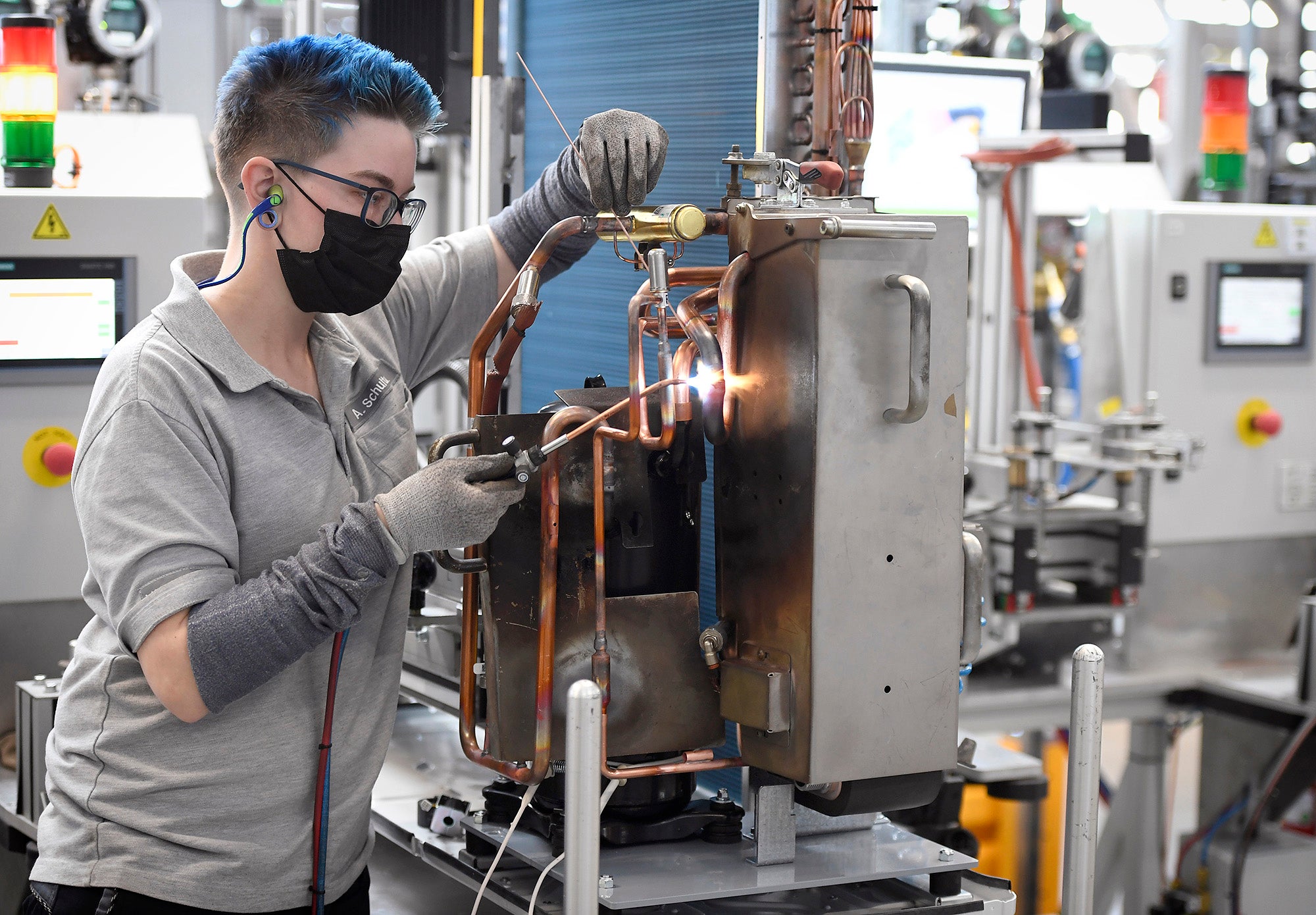
A worker solders an air heat exchanger, the heart of a heat pump, at a manufacturing facility in Germany. (Roberto Pfeil / picture-alliance / dpa / AP)
The fossil fuel industry is spending millions to convince people that burning gas or propane in our homes is the way to go. They are misusing ratepayers funds to spread misinformation to promote gas and propane appliances while disparaging electric alternatives like heat pumps and induction cooktops. For example, paying media influencers to promote fossil fuel products over cleaner alternatives to heat American homes.
Last year, Oregon’s biggest gas utility tried to charge its customers for creating children’s booklets and other propaganda materials that presented methane gas, gas-powered buses and gas appliances as “clean” and “safe.” Earthjustice litigation and advocacy ultimately put a stop to the utility’s scheme, and we’re currently fighting other efforts by utilities in Maryland and California trying similar schemes to charge utility customers for lobbying and marketing expenses.
The truth is that electrifying our homes and businesses and powering them with 100% clean energy has huge potential to both cut carbon emissions and make our air healthier to breathe overall. That’s why Earthjustice has been working for years to electrify our homes — including cook stoves and other appliances — with our attorneys working in states like California, New York, Maryland, and Washington to usher us into an electric, healthy era for our homes, and our legislative team busy in D.C. securing funding for this transition.
3. Hyping dirty hydrogen
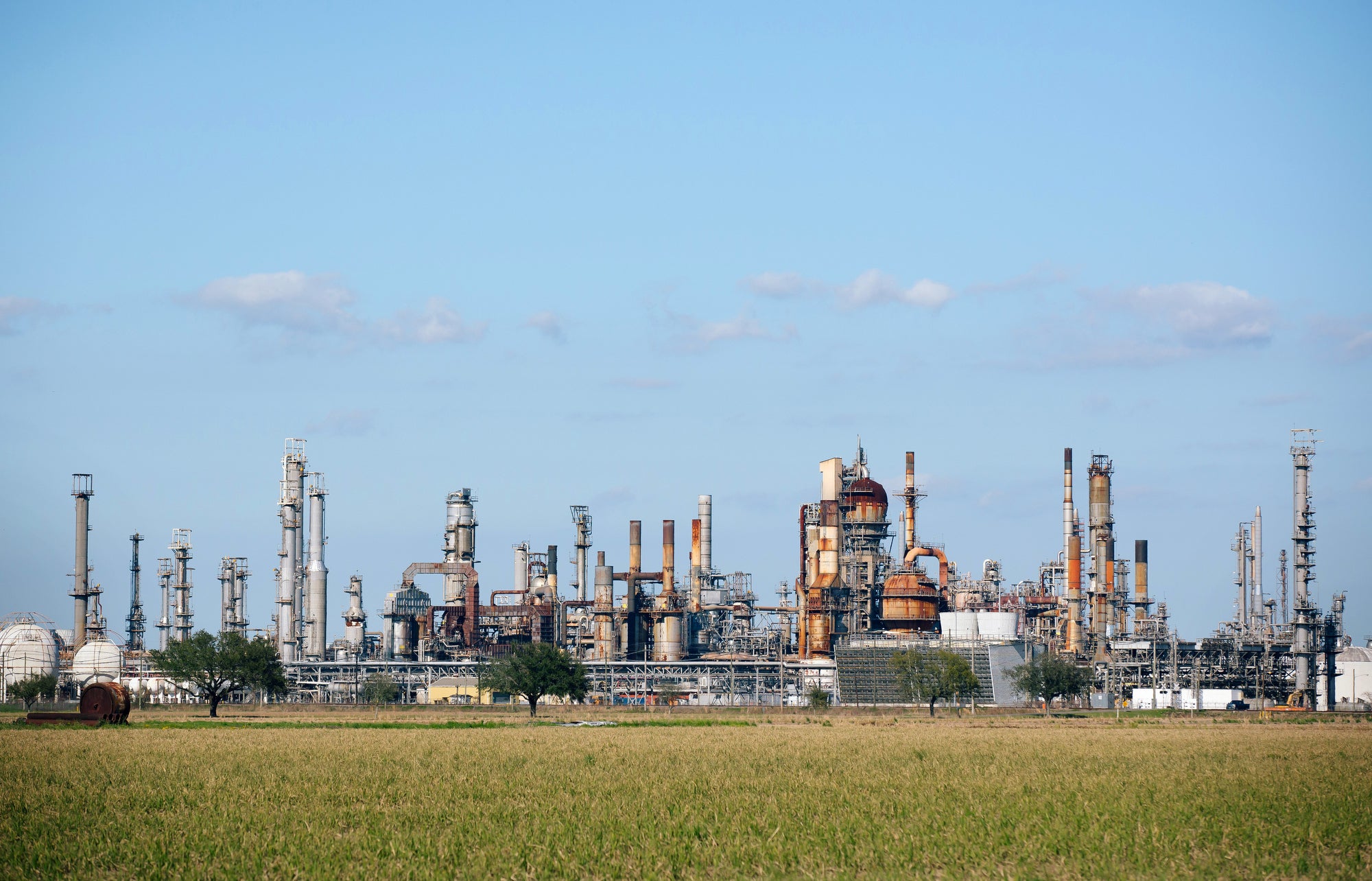
The closed Shell Convent Refinery in St. James Parish, Louisiana. The refinery is the site of the new Linde hydrogen production facility. (Brad Zweerink / Earthjustice)
Fossil fuel companies want us to believe that hydrogen fuel is an up-and-coming clean energy savior. Take, for example, the oil company Shell, which has been lobbying the Biden administration to let Shell greenwash the company’s dirty hydrogen production and characterize it as renewable energy under the new hydrogen tax credit system.
The reality is that hydrogen’s climate toll is so huge that global hydrogen production today is responsible for more climate pollution than the entire country of Germany. Hydrogen takes a lot of energy to produce, and in most cases, that energy is still coming from burning fossil fuels. This process not only perpetuates the need for burning oil and gas, it also emits harmful pollutants like particulate matter and nitrogen oxides — gases that create smog and can damage your lungs.
Hydrogen is also extremely dangerous to burn in our homes. Contrary to spin from oil and gas companies, burning hydrogen in home appliances designed for methane gas risks polluting the air in our homes, leaks from gas lines, and even explosions. We already have the technology for safe, efficient, and nonpolluting appliances in our homes.
The only form of hydrogen that has a role to play in our climate future is green hydrogen, which is produced in an energy-intensive process with renewable energy, and could have a niche role to play in parts of the economy we may not otherwise be able to electrify, like steelmaking or maritime shipping.
Congress has created generous subsidies for hydrogen projects. In October 2023, the Department of Energy announced that seven hydrogen hubs will receive $7 billion in Bipartisan Infrastructure Law funding. Congress also established an estimated $13.1 billion in hydrogen production tax credits in the 2022 Inflation Reduction Act.
Earthjustice is fighting for an electric, zero emissions future through our Right to Zero campaign and encouraging policy makers to look under the hood of hydrogen projects through our report, “Reclaiming Hydrogen for a Renewable Future.” We’re urging policymakers to ensure that funding doled out from the Inflation Reduction Act goes to projects that are truly clean.
4. Touting Carbon Capture as a Silver Bullet
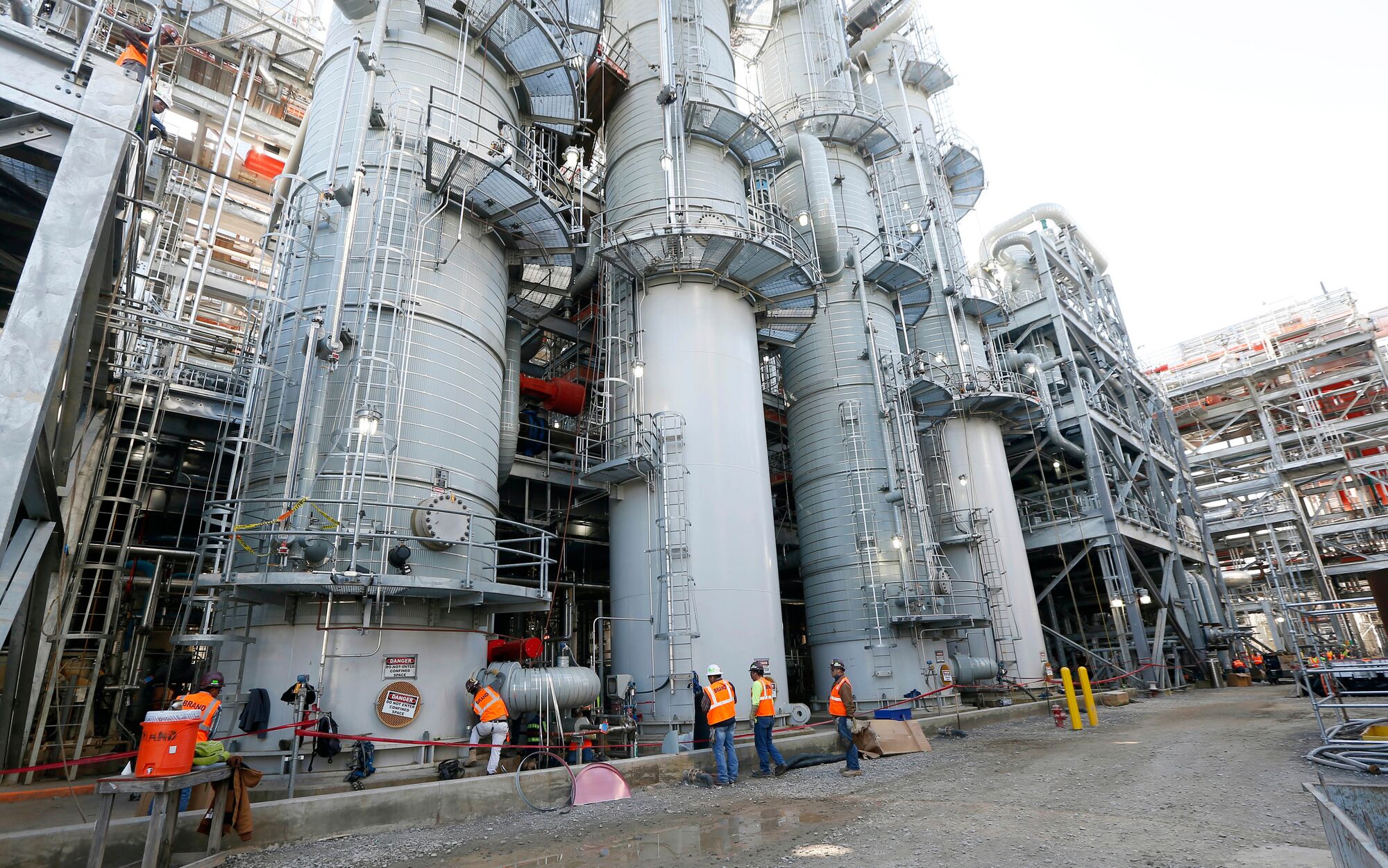
Employees work on a section of the Mississippi Power Co. carbon capture plant in DeKalb, Miss. (Rogelio V. Solis / AP)
Carbon capture and storage, or CCS, are technologies that capture carbon emissions at fossil-fueled power plants and industrial facilities. The carbon is then either transported to another industrial facility to be used, injected underground for storage, or, most commonly, to pump more fossil fuels out of the ground providing a lifeline to the fossil fuel industry. Of the 12 CCS projects operating in the U.S. today, all but one use the captured carbon for “enhanced oil recovery,” the practice of pumping CO2 into oil wells to get more oil out. CCS projects also pose health and safety risks to communities. When injected underground in carbon waste injection wells, risks include earthquakes and drinking water contamination.
Companies like ExxonMobil are using tax incentives in the Inflation Reduction Act to fund CCS projects, producing materials that tout it as a “climate solution” that will help reduce greenhouse gas emissions while continuing to produce oil and pollute. Despite what polluters want us to believe, carbon capture does not make it safe to keep burning fossil fuels.
We don’t need to keep burning fossil fuels with CCS when we can produce energy cheaply and without carbon from wind and solar, and use battery storage, energy efficiency and demand response. (Not to mention protecting natural carbon sinks like old-growth forests.) The only way to protect our climate and communities is to end our reliance on fossil fuels as soon as possible. Earthjustice and our partners are fighting back against CCS projects that prolong the use of fossil fuels. We’re also advocating for the Environmental Protection Agency (EPA) to conduct strong oversight over the buildout of carbon waste injection wells and make sure communities are protected.
Originally published on July 13, 2023. This blog was updated to include news of the Department of Energy's hydrogen hub announcement.
Earthjustice’s Clean Energy Program uses the power of the law and the strength of partnership to accelerate the transition to 100% clean energy.